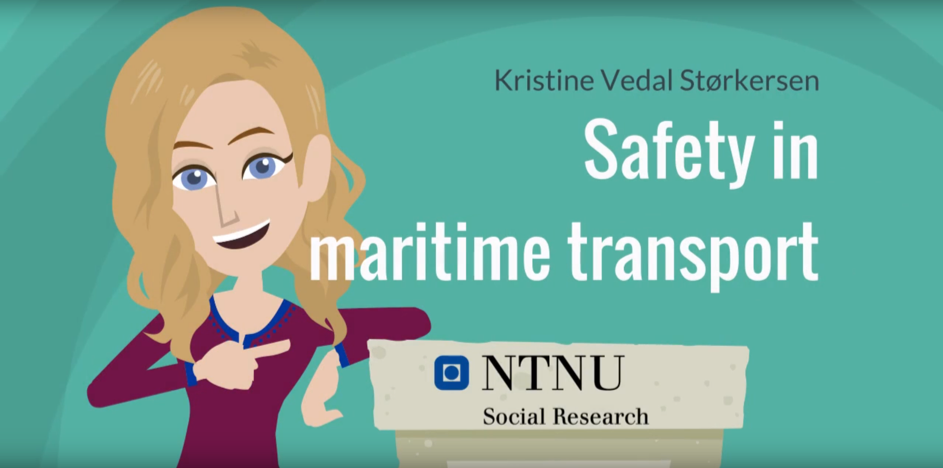
Author: Kristine Vedal Størkersen, NTNU Samfunnsforskning / NTNU Social Research
Safety management regulation with functional rules and internal controls offer potential for practical procedures. It makes companies responsible for their own safety by implementing and internally controlling safety management systems, with regulators required only to audit the systems. A movement toward deregulation combined with controls are part of why our audit society has experienced an audit explosion (Power, 2007). Parallel, most research on safety management systems emphasizes that they are experienced as complicated for companies to implement, for operational personnel to use, and for auditors and regulators to control. The International Safety Management (ISM) Code is the maritime industry’s safety management regulation with internal control.
The ambiguities displayed by both research and empirical outcomes demonstrate the need for this dissertation, which examines the ISM Code’s influence on safety-related decision making in on three levels of Norwegian coastal transport:
- The findings regarding regulators show that internal control regulation severely limits ther discretionary space, as they do not control the content of companies’ safety management.
- Profit making, accountability, and internal control can cause managers to make decisions as if they had less discretionary space than stated in the ISM Code. Companies purchase easily auditable, standardized systems that are more complex than necessary.
- Seafarers are constrained differently Operational managers translate safety management systems into practice for the operational personnel. The translation provides operational personnel with systematic safety awareness and routines that may decrease personal injuries. It also results in a heavy workload and documentation burden for the operational managers and thus less concentration and limited situational awareness, and can contribute to ship accidents.
Overall, internal controls, documentation, and auditing constrain the safety-related decision making, and thus ironically run counter to the ISM Code’s objective of ensuring maritime safety. The core paragraphs of the ISM Code are beaten by its parts about documentation and verification. Companies implement easily auditable safety management systems, which can complicate the procedures. Hence, simple function-based rules like the ISM Code are not transformed into simple safety management in the companies.
These results about core objectives being overshadowed by auditability demands might not be restricted to the ISM Code and coastal transport. It rather can be a symptom of the audit society as a whole, and illustrate how bureaucracy escalates even though policymakers and other actors talk about the necessity to avoid it. Many areas of society might gain by decreased auditability and increased value of un-auditable activities, like some operational seafarers enjoy. To unlock the full potential for safety management with practical procedures, thus, will require an audit implosion. Regulators, companies, and operational personnel would benefit by safety measures less concerned with auditability and more focused on safety itself.
Here is a movie about the study: https://www.youtube.com/watch?v=s4-MXnA_oQo
Here is the thesis: https://ntnuopen.ntnu.no/ntnu-xmlui/handle/11250/2506641
